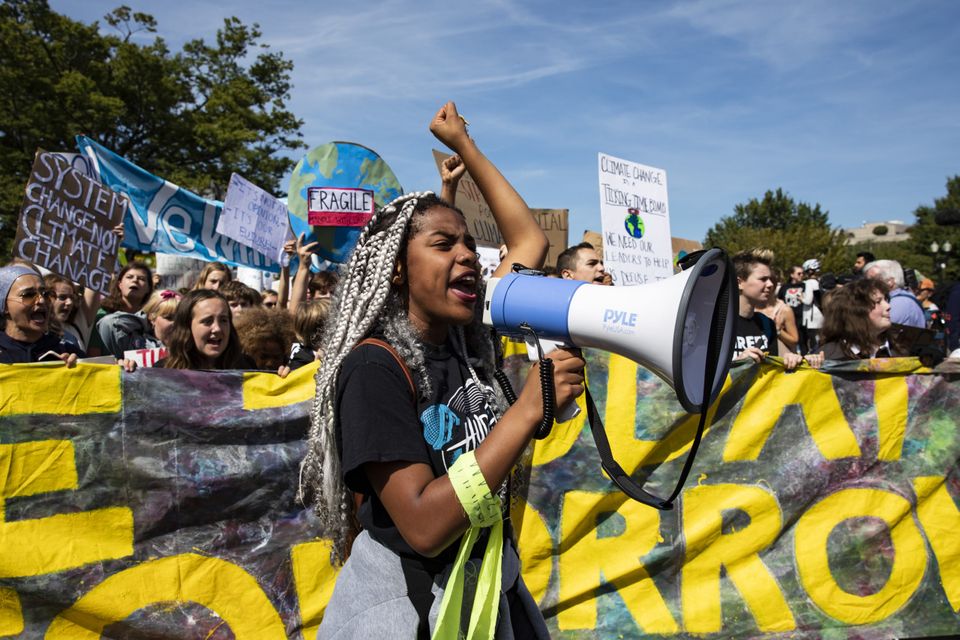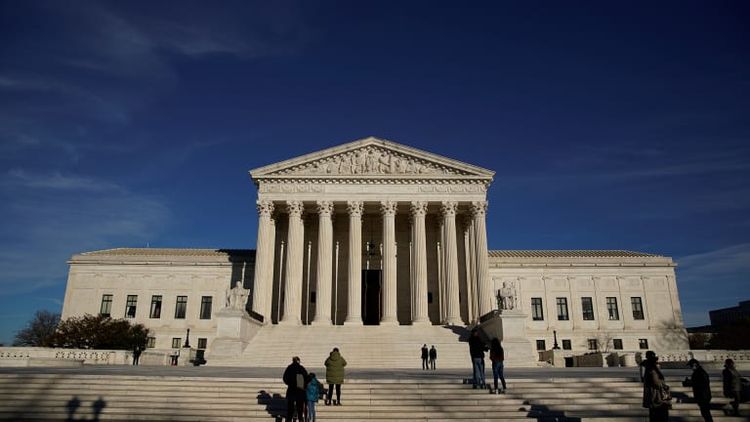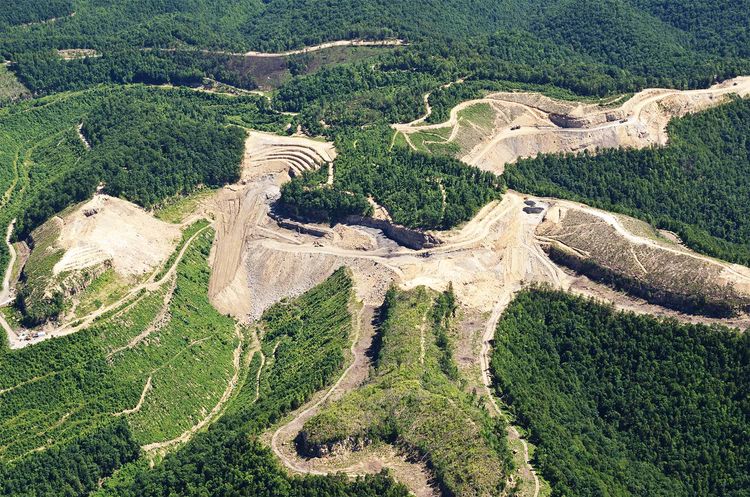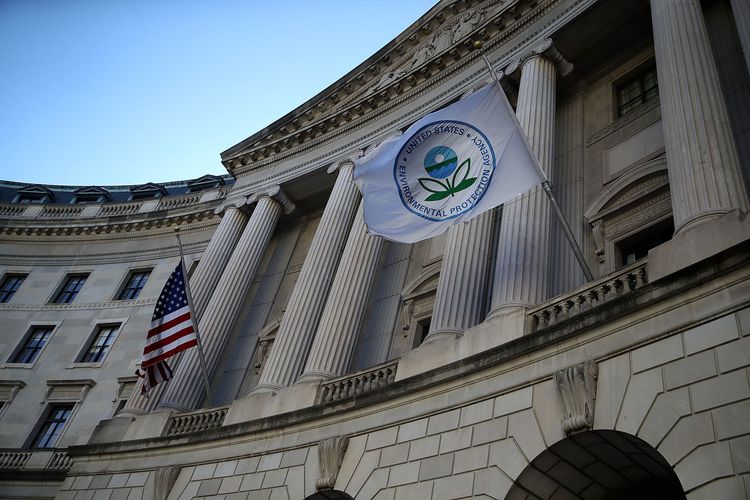Damages: The Supreme Court’s Obscure Procedural Ruling in Baltimore’s Climate Case, Explained

By Karen Sokol
Last week, the U.S. Supreme Court weighed in on an important case about whether major oil and gas companies should be held accountable for engaging in a systematic marketing campaign to deceive the public about the catastrophic threat that fossil fuel products pose to the planet.
The Court didn’t consider the merits of the case but rather answered an obscure procedural question in a way that permits the defendants to continue to delay litigation in state court, and thereby also serves to deny the public essential information about the fossil fuel industry’s attempt to spread disinformation about its products’ role in fueling the climate crisis.
In the case, Baltimore alleges that the companies used deceptive marketing tactics to hide the danger of fossil fuel products in order to preserve their massive profit streams, in violation of state tort and statutory law. Baltimore argues that these companies should thus help pay for the city’s efforts to respond to sea level rise, increased flooding, extreme heat, and other dangers to the city’s residents and infrastructure caused by the climate crisis. Numerous other cities, counties, and states have filed similar cases.
“The only question before us is one of civil procedure,” Justice Neil Gorsuch wrote in the opening of the majority opinion. His qualification may seem odd, as the fossil fuel companies based their petition for review on a question of civil procedure. To understand the thinking behind it, it helps to understand the industry’s litigation strategy in these cases.
Litigation strategy
Instead of defending the local governments’ state law claims on the merits, the oil and gas companies have sought to shift the cases from state to federal court, where they believe they are more likely to succeed. All but one federal district court has rejected their jurisdictional arguments, remanding the cases to the state courts in which they were originally filed.
In most cases, defendants can’t appeal such remand decisions until the state cases are complete. But they can seek immediate appeal at the federal level on two bases. So it’s perhaps not surprising that the fossil fuel industry asserted one of those bases — known as federal-officer removal — amongst the eight arguments it made to the district court. Indeed, as stated by Judge Ellen Hollander, the federal district judge in Maryland who wrote a thorough opinion detailing the reasons each base was without merit: “This matter presents a primer on removal jurisdiction; defendants rely on the proverbial ‘laundry list’ of grounds for removal.”
Because they had asserted federal-officer removal jurisdiction, the fossil fuel industry defendants were able to further delay state trial proceedings by immediately appealing Hollander’s remand order to the Fourth Circuit Court of Appeals. The Fourth Circuit court addressed — and rejected — only the ground of removal that is immediately appealable. The problem that raised for the defendants was that the federal-officer removal ground is quite shaky, even among their laundry list of shaky grounds.
The companies then turned to the Supreme Court. Tellingly, they didn’t take issue with the Fourth Circuit’s rejection of their federal-officer removal claim, but rather dropped that claim and instead argued that the Fourth Circuit should have reviewed all of their other federal removal claims. Further, “[t]o preserve judicial resources,” the defendants asked the Court to review the one basis of removal that they believe is their best chance — namely, that the state claims are “federal” in nature and thus belong in federal court.
The Court agreed that the Fourth Circuit has the statutory authority to review all asserted bases of removal and remanded the case back to that court to do so. It did not address the merits of the industry’s claim that the state cases should be “federalized” and thus remain in federal court. That ball is now back in the appellate court.
This is the point that Gorsuch emphasized in his opinion: As a matter of civil procedure, appellate courts must review all bases of removal, rather than only the one that is immediately appealable, he concluded for the majority. By the majority’s lights, the civil procedure question is apparently easy to answer, as the relevant federal statute provides “a clear … directive” supporting the industry’s argument for review of all of its asserted bases of removal.
Sotomayor’s lone dissent
In her lone dissent, Justice Sonia Sotomayor concluded that the Fourth Circuit correctly determined that it had jurisdiction to review only the federal-officer removal claim. She supports that conclusion not only with a careful examination of the statutory text, legislative history, and relevant caselaw, but also by pointing out the irony of the majority’s interpretation in the context of the case: “Petitioners no longer advance their [federal-officer removal] argument. … Yet that argument somehow opens a back door to appellate review that would otherwise be closed to them. Meanwhile, Baltimore, which has already waited nearly three years to begin litigation on the merits, is consigned to waiting once more.”
The majority’s interpretation, in short, expands federal judicial authority in a way that rewards the defendants’ “gamesmanship” to evade litigation in state court.
By allowing the industry to continue tying this litigation up with questions of civil procedure rather than defending against the merits of the plaintiffs’ state claims, the majority’s decision also supports the defendants’ efforts to delay discovery about the industry’s role in polluting social and political discourse with disinformation to undermine climate action and keep us on a fossil-fuel dependent path that has led us to the brink of planetary collapse.
A fuller picture of the industry’s deceptive marketing tactics is an important part of this country’s political and cultural history that can inform our decisions about how best to respond to the climate emergency. This is particularly important now, as the industry’s disinformation campaign continues — and grows even more insidious and sophisticated as calls for climate action grow louder. The civil discovery and trial system is a powerful tool to expose hidden information, and the fossil fuel industry knows that. The civil procedure question resolved in this case is in this sense more consequential than Gorsuch’s opening qualification suggests.
Karen C. Sokol is a professor of law at Loyola University New Orleans College of Law and is a Member Scholar at the Center for Progressive Reform.





